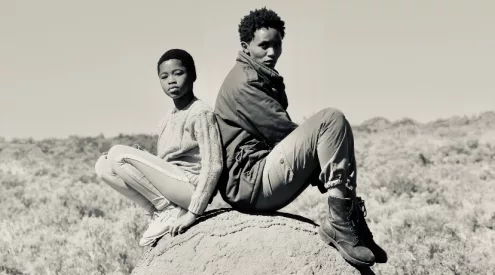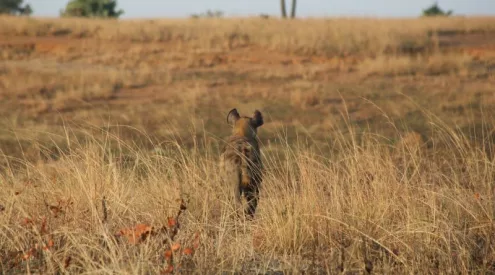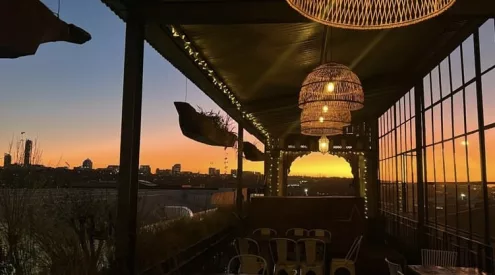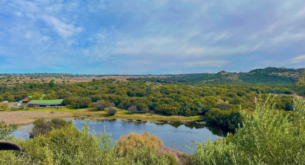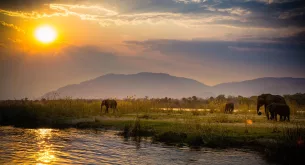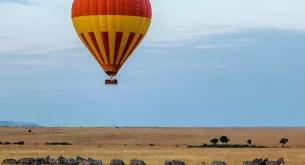Taking place in Cape Town from 19 March to 3 April is the University of Cape Town’s ICA Live Art Festival events.
One of the urgent questions posed by this year’s in-person ICA Live Art Festival is, ‘What does it mean to recognise consciousness in all living things as we navigate the challenges of the Anthropocene?’

Karin Bachmann and Ayesha Price
The festival programme embraces several performances in a line-up of 38 diverse works. The works reference sentient beings, the idea of consciousness in all that lives.
Fittingly, most of these performances are set to take place in Cape Town’s iconic botanical garden, Kirstenbosch. The famed landscaped grounds are home to a multitude of species of plants, insects, birds, reptiles and other animals. The events include talking to plants, making flower arrangements and plant-dyed cloth, and ghost tours.

Kirstenbosch / Melanie Boehi
But the irony of this setting is not lost on the festival’s curators and performers. They relish the opportunity to remind audiences that Kirstenbosch has a contested colonial past and that our relationship with the fragile natural world remains complicated.

Imilingo – Nomcebisi Moyikwa and Qhawe Vumase
The seven works will engage with plants, politics, and history, allowing audiences to see and experience Kirstenbosch, and plants, in a fresh way. Melanie Boehi, the festival co-curator says, ‘Kirstenbosch is mostly framed as a site of nature, but once we look at it as a place of work, it becomes clear that it is also a space of politics.’
The Kirstenbosch programme explores different aspects of ecology and history. On Saturday 2 April, Cape Town artist Ayesha Price and Adderley Street flower seller Karin Bachmann will lead a public workshop for participants who want to learn how to make flower arrangements and plant sculptures that reflect on stories about the past, place and belonging, using plant material from Kirstenbosch.

Karin Bachmann
South African-Ugandan artist and textile designer Sibablwe Ndlwana will demonstrate how to make a botanical community cloth with plant dyes. Lastly, a group of artists, scientists, healers, designers and anthropologists will host a workshop on how to interact with, and perhaps ‘talk to’, plants.

Picture: Sibabalwe Ndlwana by Noncedo Gxekwa
On Sunday 3 April, Cape Town-based architect and artist Ilze Wolff will reflect on garden and land politics. American artist Chanelle Adams will take participants on a ‘ghost tour’ of the camphor trees planted at Kirstenbosch by Cecil John Rhodes. In addition, Swiss artist Daniela Müller will reflect on human-plant-animal relationships through the garden mole, often considered a problem animal.

Illze Wolf
Finally, Cape Town-based DJ and writer Ntone Edjabe will perform Ntone Edjabe’s Journey through the Secret Life of Plants, revisiting musician Stevie Wonder’s pioneering double album and his work on the Black experience of the natural environment. This performance will take place at the University of Cape Town’s Hiddingh Campus.
Each performance will draw audiences into a deeper understanding of the junction between nature and culture, an often-uncomfortable space, but one in which cleansing can take place. As any visitor to Kirstenbosch knows, the famous Camphor Avenue showcases camphor trees that were planted during Cecil John Rhodes’s ownership of the land. Legend has it that Rhodes planned to plant trees from all over the British empire at Kirstenbosch.

Kirstenbosch / Chanelle Adams
The trees are haunted by the history of violence and exploitation that define Rhodes’ legacy– but camphor trees are also a healing plant, known in Madagascar as Ravintsara. By looking at the trees in a different light, liberation can become part of the conversation, Adams suggests.
The intention of her performance, Adams says is ‘to release the future from historical horrors’ even though ghosts remind us of what is unfaced and unresolved.
The full ICA Live Art Festival programme can be viewed online. Tickets are free but space is limited, so those who are interested are encouraged to book as soon as bookings are opened on 9 March. For more information, please email [email protected].

Pictures: Supplied
ALSO READ


